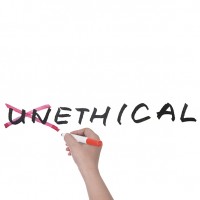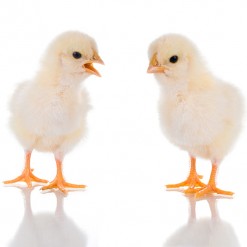

People are attracted to vegetarianism for all sorts of reasons. Some people want to reduce pollution or live longer, healthier lives. Others are ethically opposed to eating animals and also want to help preserve the Earth’s natural resources. One of the biggest reasons to go with a vegetarian diet is to help prevent disease. About 70% of all diseases are related to diet, including 1/3 of all cancers. Vegetarian diets are much healthier than the average American diet, particularly when it comes to reducing the risk of cancer or preventing heart disease. A low-fat vegetarian diet is the most effective way to prevent coronary artery disease, or at least stop its progression. The mortality rate for cardiovascular disease is higher in non-vegetarians than in vegetarians. Vegetarians consume little animal fat and cholesterol, instead consuming much more antioxidant-rich produce and fiber. A vegetarian diet also helps keep your weight down. The typical diet of an American adult is full of saturated fats and processed foods as opposed to plant-based foods. People who are overweight are at a greater risk of diabetes, stroke, and heart disease. According to one study, vegetarians lost an average of 24 pounds in the first year of their diet, and were able to keep that weight off. A vegetarian diet also provides more energy. Proper nutrition generates more useable energy because you are not consuming fat or cholesterol. Furthermore, a vegetarian diet helps reduce pollution. The meat industry has a devastating impact on the environment. According to the EPA (US Environmental Protection Agency), animal waste runoff from factory farms is responsible for nearly 200,000 miles of polluted streams and rivers. Despite all of these factors, many people become vegetarians for one main reason – to spare animals. Millions of animals are slaughtered every year for human consumption. Furthermore, farmed animals are not protected from cruelty under law, and many live in horrific conditions, crammed into cages where they can barely move.
 So is a vegetarian diet right for you? Before you decide to make this drastic change, you need to consider some pros and cons. The pros were mentioned earlier. You have better weight control, you lower the risk of cardiovascular disease and will have a longer life expectancy, you help reduce your impact on the environment, and you get to save the lives of animals. There are several drawbacks, however. While a well-planned vegetarian diet can be adequate in most essential nutrients, vitamin B-12 is a nutrient that is only naturally found in animal-based products. You will need to obtain vitamin B-12 from supplements to ensure you are getting the nutrients you need. Just because you switch to a vegetarian diet doesn’t instantly make your diet healthy. Remember, you can still eat cake, French fries, doughnuts, and cookies. You will need to eat healthy to ensure you are promoting good health. You also want to decide what kind of vegetarian you want to be. Some people don’t eat any animal products, including dairy and eggs, while others only eliminate meat, and still eat fish. Lastly, you need to consider how your new diet will affect others in your life. If you live with a partner or have a family, you may need to make your own meals separately, which means you may be cooking two meals at a time.
So is a vegetarian diet right for you? Before you decide to make this drastic change, you need to consider some pros and cons. The pros were mentioned earlier. You have better weight control, you lower the risk of cardiovascular disease and will have a longer life expectancy, you help reduce your impact on the environment, and you get to save the lives of animals. There are several drawbacks, however. While a well-planned vegetarian diet can be adequate in most essential nutrients, vitamin B-12 is a nutrient that is only naturally found in animal-based products. You will need to obtain vitamin B-12 from supplements to ensure you are getting the nutrients you need. Just because you switch to a vegetarian diet doesn’t instantly make your diet healthy. Remember, you can still eat cake, French fries, doughnuts, and cookies. You will need to eat healthy to ensure you are promoting good health. You also want to decide what kind of vegetarian you want to be. Some people don’t eat any animal products, including dairy and eggs, while others only eliminate meat, and still eat fish. Lastly, you need to consider how your new diet will affect others in your life. If you live with a partner or have a family, you may need to make your own meals separately, which means you may be cooking two meals at a time.
